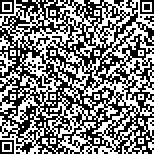| 引用本文: |
周德生,谭惠中.基于络脉理论辨治脑小血管病——中医脑病理论与临床实证研究(二)[J].湖南中医药大学学报,2019,39(2):153-158[点击复制] |
|
| |
|
|
| 本文已被:浏览 4609次 下载 1262次 |
| 基于络脉理论辨治脑小血管病——中医脑病理论与临床实证研究(二) |
| 周德生,谭惠中 |
| (湖南中医药大学第一附属医院神经内科, 湖南 长沙 410007;湖南中医药大学, 湖南 长沙 410208) |
| 摘要: |
| 脑小血管病隐匿起病、缓慢发展、部分可急性发作。根据脑小血管的临床特点,中医病机以脑络荣气虚滞为主。其病机特征是,病位隐曲,责之络脉;内邪杂合,病性复杂;症状广泛,复合证候;病程慢性进展,或有突变加重。系统防治脑小血管病需要全程动态管理,病证系统治疗,最优化治疗,辨病辨证结合,多系统多病同治,复方简药图治,杂合适宜以治。在辛味通络、芳香透络、虫蚁搜络、藤类行络等络病的常用治法基础上,选择使用多汁药物养阴、破血化瘀通络、开窍药物疏通玄府。从络脉荣气虚滞视角探讨脑小血管病,着眼恢复脑窍玄府气化,可以为中医防治脑小血管病的临床决策提供参考。 |
| 关键词: 脑小血管病 络脉 荣气虚滞 认知障碍 血管性痴呆 帕金森综合征 |
| DOI:10.3969/j.issn.1674-070X.2019.02.002 |
| 投稿时间:2018-11-02 |
| 基金项目:国家自然科学基金资助项目(81874463);湖南省科技厅科技创新平台与人才计划资助项目(2017SK4005);湖南省中医药管理局资助项目(201824);湖南省科技厅重点专项资助(2017SK2111) |
|
| Syndrome Differentiation-Based Treatment of Cerebral Small Vessel Disease Based on Collateral Theory: Traditional Chinese Medicine Theory of Encephalopathy and Clinical Empirical Study (Ⅱ) |
| ZHOU Desheng,TAN Huizhong |
| (Department of Neurology, The First Affiliated Hospital of Hunan University of Chinese Medicine, Changsha, Hunan 410007, China;Hunan University of Chinese Medicine, Changsha, Hunan 410208, China) |
| Abstract: |
| Cerebral small vessel disease has insidious onset and progresses slowly, and some have an acute exacerbation. According to the clinical features of cerebral small vessel disease, the traditional Chinese medicine (TCM) pathogenesis is mainly attributed to nutrient Qi deficiency and stagnation in brain collaterals. The characteristics of the pathogenesis are as follows: the indistinguishable disease location, and the responsible collaterals; the heterozygous internal evils, and the complex disease; the extensive symptoms, and the compound syndromes; and the chronic progression of disease, or with an acute exacerbation. Based on the whole process of dynamic management, systematic treatment of disease and syndrome, and optimization of treatment, the following items should be considered: disease differentiation and syndrome differentiation, multi-system and multi-disease treatment, simple medicine treatment with compounds, and suitable heterozygous treatment. On the basis of the common treatments for collateral diseases such as dredging collaterals by pungent drugs, penetrating collaterals by aromatic drugs, searching collaterals by insects, and walking collaterals by vines, we use succulent drugs to nourish Yin, blood-breaking and stasis-resolving drugs to dredge collaterals, and orifice-opening drugs to dredge Xuanfu. From the perspective of nutrient Qi deficiency and stagnation in collaterals, the study of cerebral small vessel disease, the restoration of cerebral orifice, and the Qi transformation of Xuanfu can provide a reference for the clinical decision-making in the TCM prevention and treatment of cerebral small vessel disease. |
| Key words: cerebral small vessel disease collateral nutrient Qi deficiency and stagnation cognitive disorders vascular dementia parkinson's disease |
|

二维码(扫一下试试看!) |
|
|
|
|




